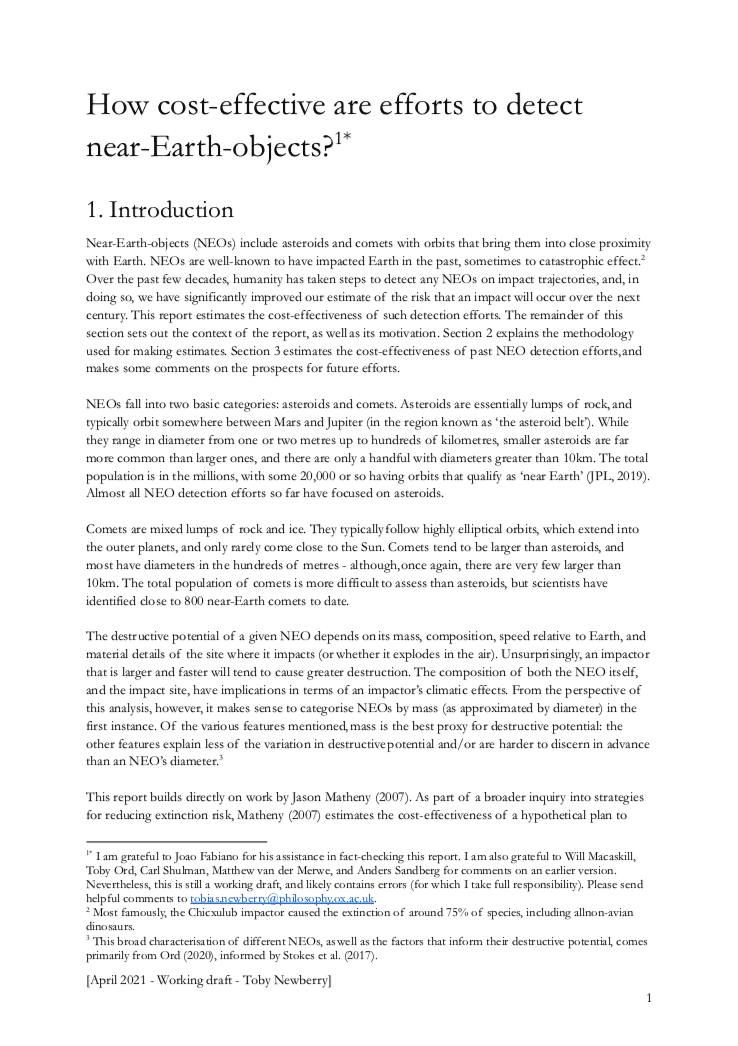How cost-effective are efforts to detect near-Earth-objects?
Toby Newberry (Future of Humanity Institute, University of Oxford)
GPI Technical Report No. T1-2021
Near-Earth-objects (NEOs) include asteroids and comets with orbits that bring them into close proximity with Earth. NEOs are well-known to have impacted Earth in the past, sometimes to catastrophic effect.2 Over the past few decades, humanity has taken steps to detect any NEOs on impact trajectories, and, in doing so, we have significantly improved our estimate of the risk that an impact will occur over the next century. This report estimates the cost-effectiveness of such detection efforts. The remainder of this section sets out the context of the report...
Other working papers
Misjudgment Exacerbates Collective Action Problems – Joshua Lewis (New York University) et al.
In collective action problems, suboptimal collective outcomes arise from each individual optimizing their own wellbeing. Past work assumes individuals do this because they care more about themselves than others. Yet, other factors could also contribute. We examine the role of empirical beliefs. Our results suggest people underestimate individual impact on collective problems. When collective action seems worthwhile, individual action often does not, even if the expected ratio of costs to benefits is the same. …
Respect for others’ risk attitudes and the long-run future – Andreas Mogensen (Global Priorities Institute, University of Oxford)
When our choice affects some other person and the outcome is unknown, it has been argued that we should defer to their risk attitude, if known, or else default to use of a risk avoidant risk function. This, in turn, has been claimed to require the use of a risk avoidant risk function when making decisions that primarily affect future people, and to decrease the desirability of efforts to prevent human extinction, owing to the significant risks associated with continued human survival. …
Dynamic public good provision under time preference heterogeneity – Philip Trammell (Global Priorities Institute and Department of Economics, University of Oxford)
I explore the implications of time preference heterogeneity for the private funding of public goods. The assumption that players use a common discount rate is knife-edge: relaxing it yields substantially different equilibria, for two reasons. First, time preference heterogeneity motivates intertemporal polarization, analogous to the polarization seen in a static public good game. In the simplest settings, more patient players spend nothing early in time and less patient players spending nothing later. Second…

